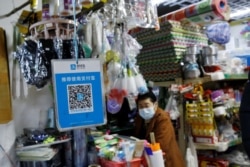China has suspended the record-breaking $35 billion stock exchange listing of Ant Group, a spinoff corporation of Chinese e-commerce conglomerate Alibaba, because regulators say changes in the financial tech regulatory environment may cause it to fail to meet listing requirements.
As such, analysts said the company’s current valuation target fails to reflect the country’s anticipated tightening of regulations on internet micro-lending.
Lu Suiqi, deputy chair of Peking University’s department of finance, said that China’s pending move on internet micro-lending will have a negative impact on Ant Group’s future business model – creating risk that he believes the Shanghai Stock Exchange was trying to flag after last week’s frenzied bidding for the company’s shares.
“Once the new regulation [on internet micro-lending] is implemented, its profit model will no longer sustain, which will lead to the downward revision of its valuation. If Ant (Group) were to go public as planned, its share prices may soon experience a free fall as its valuation would likely drop,” Lu told VOA on Wednesday.
Rise of Ant
Ant Group, formerly known as Ant Financial, began with the name Alipay in 2004 – a third-party online payment tool for Alibaba’s e-commerce transactions.
As of June, its flagship Alipay remains China’s largest digital payment platform, which serves more than one billion users and 80 million merchants with annual payment volume transactions reaching $17.6 trillion.
Ant Group has diversified into internet micro-lending businesses, totaling, as of June, $253 billion in uncollateralized consumer loans, which were charging as high as 15%, and lending $60 billion to small- and micro-sized firms.
The company was originally slated to go public on stock markets in Shanghai and Hong Kong on Thursday, issuing more than 3.4 billion new shares, priced at around $10 a share.
World’s largest IPO
Ant Group’s initial public offering (IPO), the world’s largest, was set to raise $35 billion and boost its market value to more than $310 billion, higher than that of the Industrial and Commercial Bank of China, the country’s largest.
Demand for Ant Group’s shares was so strong last week that it had to close its institutional pre-order book ahead of schedule.
But on Monday, Jack Ma, founder of Ant Group’s parent firm, Alibaba, which owns 33% of Ant, and two other Ant executives, were summoned for “supervisory interviews” by China’s central bank, securities and foreign exchange regulators.
That coincided with the regulators’ move to begin the month-long solicitation of public opinions toward the country's draft regulation on internet micro-lending in preparation for the implementation of the new policy.
Meanwhile, the Shanghai Stock Exchange announced late Tuesday it would postpone the company’s listing plan, saying in a statement that major issues, including changes in the financial technology regulatory environment, may cause Ant Group “to fail to meet the issuance and listing conditions or information disclosure requirements.”
A dramatic twist
Ant Group then decided to suspend its dual listings, which likely triggered the 7.5 percent drop of Alibaba's Hong Kong-listed shares on Wednesday, after Alibaba’s New York-listed stocks closed 8.13 percent lower overnight.
The regulators’ sudden turnabout also followed Ma’s strongly worded criticism at the Bund Summit of Chinese bankers and regulators in Shanghai in late October, where he criticized peer banks as operating with a pawn shop mentality and called global banking requirements on available cash reserves stated in the Basel Accords outdated. The Basel Accords refer to a framework on regulating the banking industry. They are named after a city in Switzerland.
Peking University’s Lu said Ma’s blunt words were probably one reason regulators halted Ant Group’s $35 billion listing plan.
But more importantly, Ant Group’s unregulated micro-lending business model puts its banking rivals at an unfair disadvantage, which the professor said China’s regulatory agencies should quickly fix.
A cooling off period
Lu added that the suspension will provide a cooling off period for investors to fairly assess Ant Group’s valuation if the company reportedly plans to stage a comeback in six months.
Oliver Rui, professor of finance and accounting at China Europe International Business School in Shanghai, said he believes Ant Group will restart its IPO at a later date.
But he agreed that the company’s over-lending practice is problematic.
“Potential risk is, I think it is probably explained by government documents, is its over-leveraging… because Ant Group has only 3 billion [yuan] capital, but they [are] engaged in more than 300 billion [yuan] loans. [That’s] a huge leverage there,” Rui told VOA over the phone. Three-hundred-billion yuan is roughly the equivalent of $45 billion.
Rui said there is speculation that Ant Group may be reclassified as a financial-sector stock, instead of a tech stock. If that happens, it will trigger another controversy if Ant Group becomes qualified to list on the Shanghai Stock Exchange’s Sci-Tech Innovation Board, analysts noted.
To-be-regulated online lending
Chu Haumin, professor of money and banking at National Chengchi University in Taipei, said China’s banking regulator had earlier learned a hard lesson from the country’s failing peer-to-peer (P2P) online lending industry.
Therefore, its regulation on internet micro-lending will surely be implemented soon to better manage risks posed by emerging financial tech firms, he said.
The Business Insider financial news website reported in August that China’s P2P industry totaled more than $218 billion in outstanding loans at its peak in 2018. The website reported many of the loans later defaulted. As of August, it reported the regulator’s statistics showed that its crackdown had resulted in $115 billion owed to investors in unpaid debt.
Chu also said, no matter how risky Ant Group’s business model is, China’s securities regulator should have had factored in these risks before green-lighting its IPO plan.
The last-minute decision to call off the IPO plan has tainted the reputation of both the Shanghai and Hong Kong stock exchanges, he said.
“China has only developed its capital markets for a period of 20- to 30 years. Obviously, the supremacy of individual will still prevail. Certain personal consideration still affects how the [capital market] system works,” Chu said, adding that he believes Ma’s blunt words have angered the regulators.
“I personally think that the last-minute decision to halt [Ant Group’s IPO plan] hurts the reputation of China’s capital markets,” he added.






